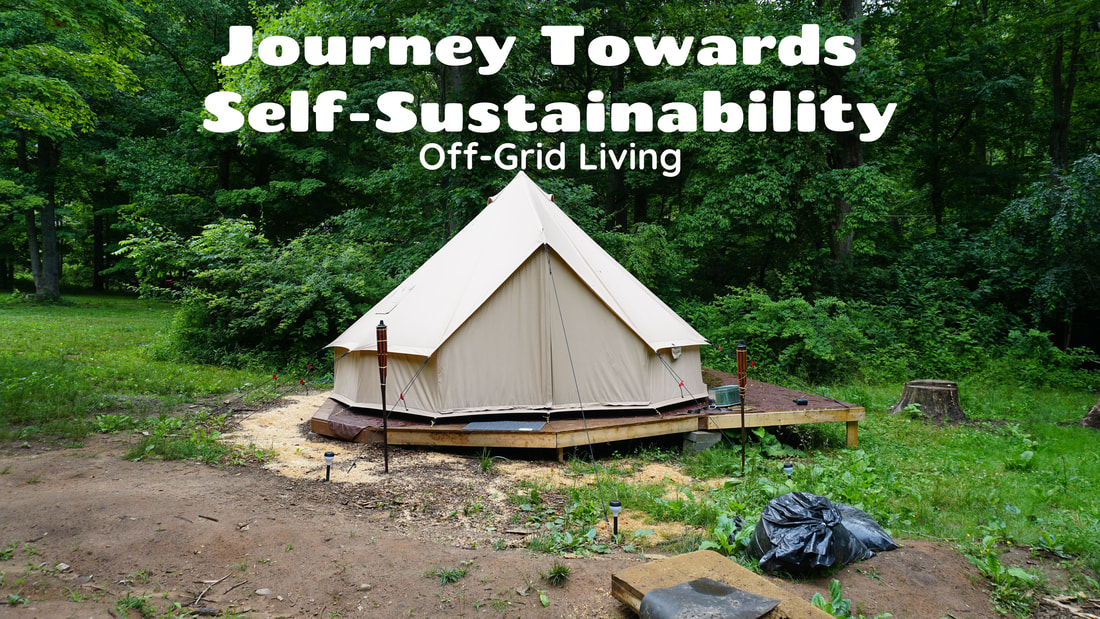|
Living off the land has become a goal for many people who seek a return to more traditional, less dependent lifestyles. The appeal of disconnecting from societal structures, becoming self-sufficient, and living in harmony with nature is undeniable. However, transitioning from a modern, convenience-driven lifestyle to one of off-grid living requires substantial planning, resilience, and adaptability. Here is an in-depth guide to help you understand what it entails to prepare unimproved land for off-grid living and how to live off the land... Understanding Off-Grid Living:
Off-grid living refers to a lifestyle that is not connected to public utilities, such as electricity, water, and sewer systems. It means depending on renewable resources and personal skills to meet daily needs. This self-sustainable lifestyle is not about isolation or disconnection from society. Instead, it's about independence, simplicity, and forming a symbiotic relationship with the environment around us. Getting Started: Preparing Unimproved Land for Off-Grid LivingLand SelectionIdentifying the right land is the first crucial step. Consider factors such as climate, soil quality, water availability, local wildlife, and accessibility to resources when selecting your land. A land survey and soil test can provide important information about the property's suitability for farming and building. Initial Land Development: After purchasing your property, start with clearing the land and preparing it for further development. Be mindful to preserve the existing ecosystem as much as possible. You may need to grade the land, dig wells for water, and build roads for access. It's important to identify spots for waste management too. Building a ShelterFor shelter, consider using locally-sourced, eco-friendly building materials. Tiny homes, log cabins, and earth-built homes like cob houses are popular choices. Consider passive solar design to leverage natural light and heat. Energy, Water, and Waste Management: Off-grid living necessitates generating your own power. Solar and wind energy systems are the most common, but you could also consider hydro power if your land has a constant water source. Consider the costs, maintenance, and power capabilities of each before choosing. Water is a crucial resource. Install a well if possible, but also consider rainwater harvesting systems and greywater recycling. Filtering and purifying systems are also needed to ensure safe drinking water. Composting toilets, biogas generators, and recycle-and-reuse practices can help manage waste effectively. Creating a compost pit is useful for recycling organic waste into nutrient-rich soil for gardening. Living off the Land: Farming, Hunting, and Foraging Growing Your Own Food: Creating a self-sufficient homestead requires learning to grow your own food. Start a vegetable garden, keeping in mind crop rotation for soil health. Fruit trees and berry bushes provide food with less annual maintenance. Consider raising livestock if your land and resources permit. Chickens are an excellent starting point, providing eggs, meat, and pest control, while larger livestock like goats and cows can provide milk, meat, and labor. Hunting and Foraging: Hunting and foraging can supplement your diet while deepening your connection to the land. Learn about local edible plants, and respect hunting seasons and regulations. Skill Building and Community Connections: Learning new skills is essential for off-grid living. Carpentry, basic veterinary care, blacksmithing, and herbal medicine are some skills you may need. While independence is key, so is building connections with your local community. Sharing resources, knowledge, and helping hands can make your off-grid journey more manageable and enjoyable. Health and Safety Considerations: Consider how to handle health emergencies. First-aid skills and supplies are essential. Also, ensure you have emergency communication methods. Living off the grid is not a retreat from the world but a conscious choice to embrace a different way of life. It requires hard work, commitment, and a willingness to learn. Yet, the rewards - from the fresh food on your table to the satisfaction of building your own home - are incomparable. As we become more conscious of our impact on the planet, off-grid living stands as a testament to a lifestyle that harmonizes with nature rather than dominating it.
0 Comments
Leave a Reply. |
AuthorTyler Scott Dedicated to researching real estate across the United States, I invest significant time and effort to explore a wide range of topics within the realm of real estate. This platform covers various aspects related to real estate, providing valuable insights and information.
Archives
October 2023
Categories |
CONTACT US.Office: 720-541-8037
Cell: 970-819-8357 Fax: 970-579-7157 Email: [email protected] Schedule a call HERE |
© COPYRIGHT 2019-2023 Legacy Land LLC | Click here to read our Legal Disclaimer.
Website Design by BonaFide Cowboy Media & Productions |
FOLLOW US. |



 RSS Feed
RSS Feed
